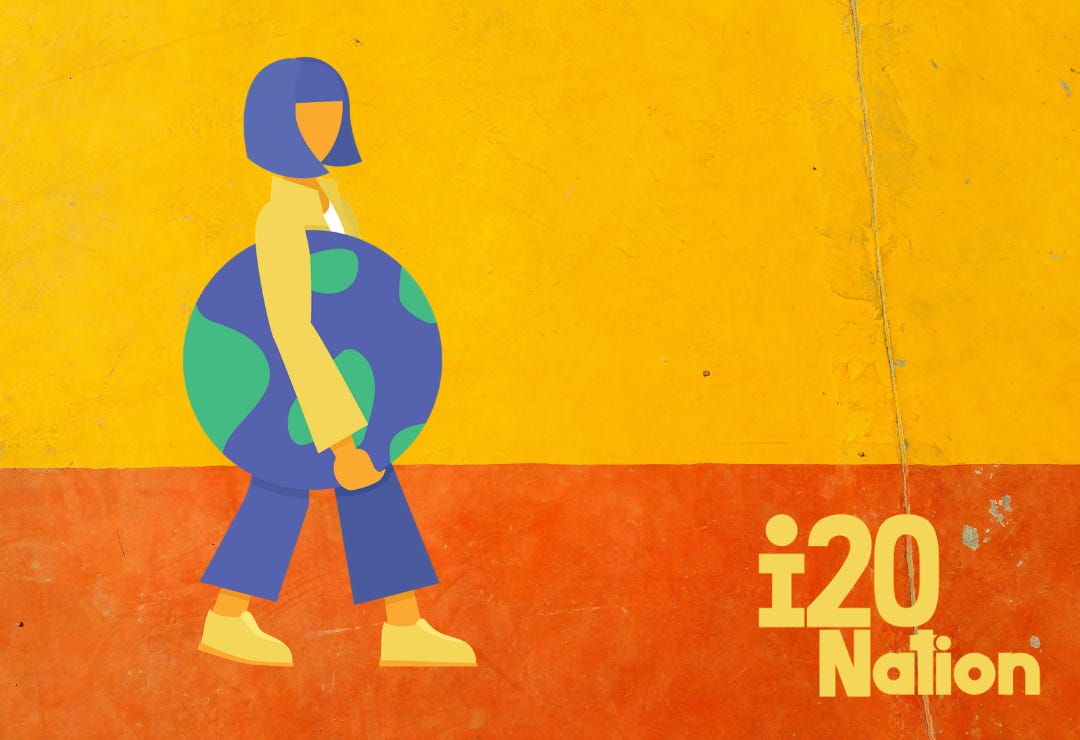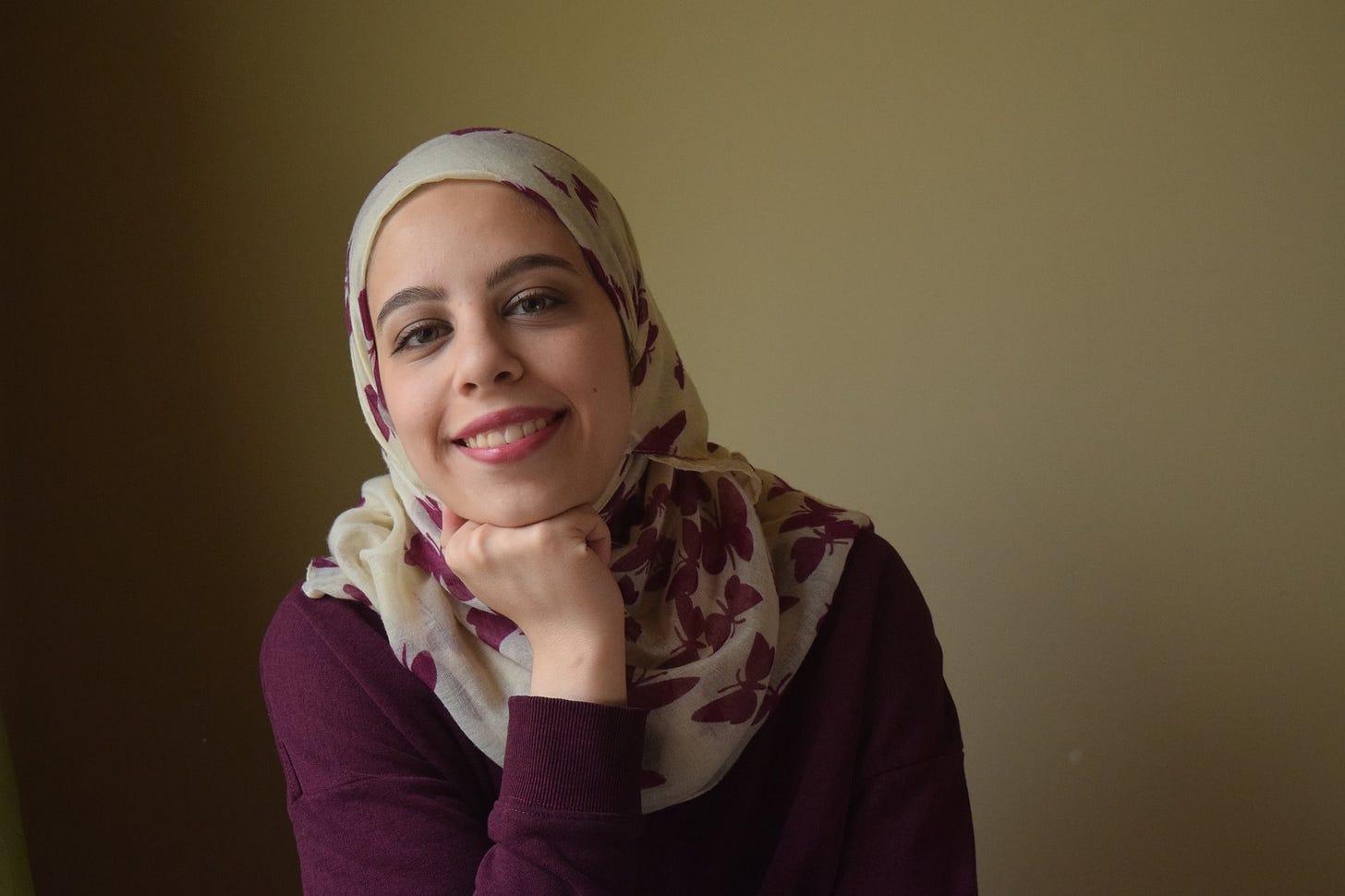Life in translation all day, every day
Living your life in a foreign language means having to translate your every thought.

My first year in the United States is still very clear in my mind.
I remember thinking I was already fluent in English. HA! Silly Ana, she had no idea what she was getting herself into.
You see, young Ana had gotten a great score on her SATs, she’d written a decent admissions essay and could even carry an extensive discussion without committing any grave grammatical offenses.
But she would soon learn none of that mattered when it came to actually having to communicate exclusively in English all day, every day.
Yes, indeed. What I learned freshman year was that no amount of exercise can prepare you for having to live your life in a foreign language. It’s just different.
At first, it was very tiring. I had a hard time explaining my thoughts. Bless my first-year roommates who, when we’d have an argument, would allow time for extended silences while I scrambled my brains trying to phrase my thoughts and translate them. They’d sit there waiting until I was ready to speak. Kindness, that’s what it was.
It was funny back then and it’s funny to think about now. None of this is dramatic. I just think it’s an interesting topic. Maybe some of you went through a version of this as well - if so, I’d love to hear about it! Tell me everything.
My friend Mariam Moustafa is currently pursuing her Master’s degree in Translation & Interpretation at NYU. She’s a native Arabic speaker, who is also fluent in French and English. She grew up in Egypt and moved to New York with her family in 2012, when she started high school.

On her brilliant blog, Mariam talks about how the experience of a multi-lingual childhood made her want to show that world to others:
“I began to perceive each language as a character who has an unique personality and who needs a good spokesperson to transmit its meanings and messages to the foreign people who are unfamiliar with it. And so, I wanted to be the translator who helps people navigate through two different languages easily.”
I wanted to get Mariam’s input on a life lived at the intersection of cultures, so we spoke over Zoom about words, languages and getting acclimated to a new life.
Here are some interesting excerpts from that conversation.
What language do you feel most free in? Or are they all on par at this point?
English and Arabic are like my besties, I use them all the time.
But I feel at home when I’m speaking in Arabic. It’s the easiest one, the closest to my heart. It makes me feel like myself.
English is sort of getting on the same level now; we’re getting to know each other better. When I’m translating, there are still some expressions I’m discovering.
And French is — you know how you feel about an old friend from school? Every time I speak it I get this sort of nostalgic feeling. It makes me remember my days in Egypt.
Tell me about your first few years in New York. What was it like, adapting to the new language?
My English was ok because I took it in Egypt, but I had an accent. I’d raise my hand in class or I’d be speaking to someone, and before speaking I’d practice what I wanted to say, in my head. Sometimes the word would come to me in French and I’d be like, “I don’t need you right now!”
Some words are hard to pronounce, they’re so much easier in French. Like “theater” - I hate that word so much! [laughing]. Also, “plural.” “Pluriel” is much easier for me.
For me, it’s the word “tree.” The Rs make it difficult to get out. Were there any words that you didn’t know, but it would’ve helped if you did?
When I was in high school, they would text me things like “IDK” for example, and I didn’t know what it was. I used Urban Dictionary a lot. It saves so much time and I don’t have to ask people.
One time I was supposed to meet a friend but she got sick and texted me, “raincheck?” I was like, “what does she mean? It’s not raining!”
Hahaha, I so get that. Jargon took some getting used to for me as well.
They come up with different things all the time and you have to keep up.
It’s hard to keep up. We sound a bit like old ladies now, don’t we?
On your blog, you talk about these languages as if each one is a person. Tell me more.
I think about these 3 languages as part of my circle of friends. It makes it easier for me to work with them, and to shift my thinking mode when I’m working.
When I use each one of them I change a little — I don’t become an entirely different person, but like a different persona. I even feel like my voice changes. I don’t know if that’s just in my head or not, but something happens.
Maybe it’s because of the expressions you have to use.
How do expressions shape a language?
Every culture has its own idioms. We spoke about this in one of my translation courses; it’s hard to find equivalents.
In Arabic, I feel like there’s one for every situation you can think of. There is this proverb that I love so much: “the cooker of the poison has to taste it.” I love the metaphor.
An English equivalent would be, “what goes around comes around,” but it’s much more practical, very get-to-the-point. The Arabic version has more emotion behind it.
We have something similar in Romanian, it’s “he who digs a hole for someone else is really digging it for himself.”
Let’s end on this: if American English were a person, what would they be like?
I have this image in my head of someone in a business suit, who likes multi-tasking. Someone who knows how to work hard but also party hard. I think Americans have the right words to express emotion when they need to, but also to get to the point fast, to get stuff done.
I agree with her. It seems to me, there are so many words to choose from. Writing in English is a joy, one I haven’t felt when attempting to express myself in my native Romanian.
And you? What do you think?
‘Til next week,

